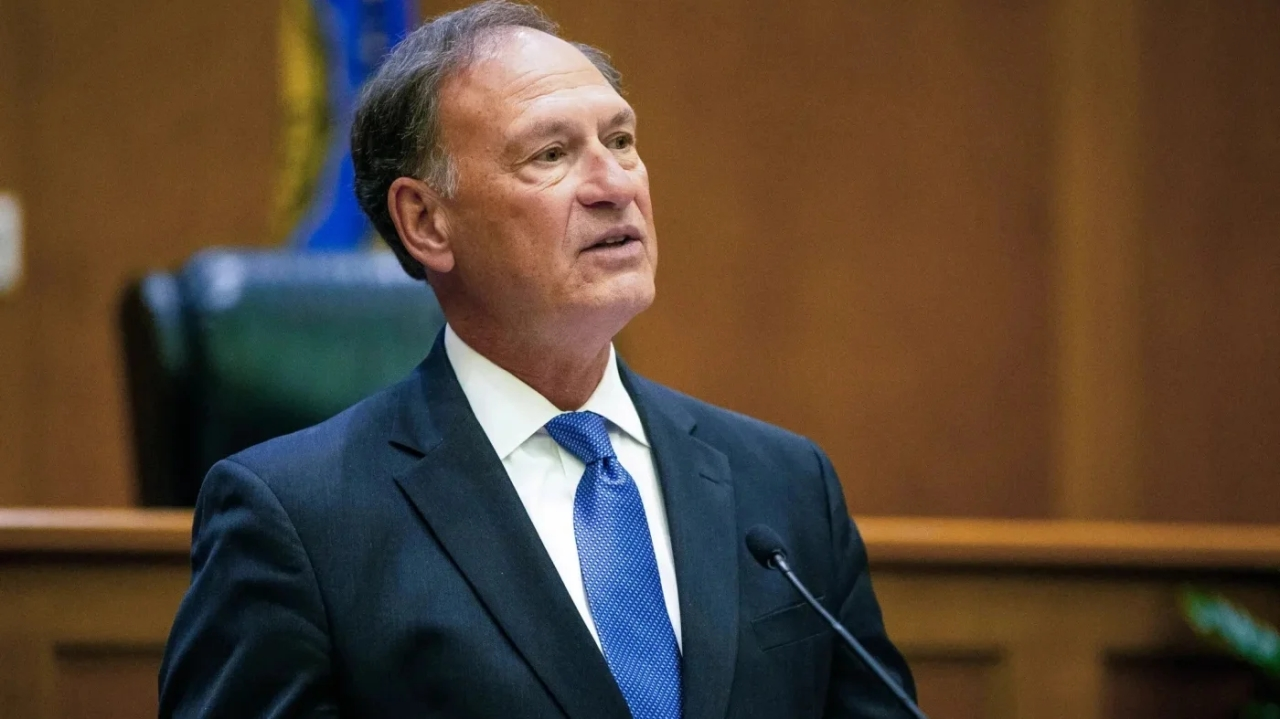Justice Samuel Alito said in an interview that Congress does not have the authority to regulate the Supreme Court, pushing back against Democratic efforts to mandate stronger ethics rules for the justices. Alito argued that the Constitution does not give Congress the power to regulate the Supreme Court. While Chief Justice John Roberts has also questioned Congress’s ability to act, he was not as definitive as Alito. Some Democrats rejected Alito’s reasoning, arguing that the Supreme Court should be subject to checks and balances. The ethics push comes after recent revelations about undisclosed trips and other ethics issues involving several Supreme Court justices.



Your bolded part just says they can create inferior courts. I don’t understand what point you’re making emphasizing it.
The sentence after that, not emphasized, the good behavior part, is already understood and judges in the federal court system can be, and have been, impeached.
Good behavior is generally used to justify lifetime tenure as a judge, unless impeached.
However, the Constitution does not guarantee lifetime tenure on the SCOTUS itself. Nothing prevents Congress from requiring a Justice to transfer to a lower court after, say, 18 years on the SCOTUS.
Well, except for the fact that acts of congress require legislation, which the supreme court can find unconstitutional.
Judicial review isn’t in the Constitution either.
That’s a very detail ignoring take on the matter but technically you’re right.
For context:
Judicial review exists because it makes sense. The framers decided to bind the government with a Constitution, but never explicitly wrote up an enforcement mechanism. The judiciary already interprets laws, so they get to be the enforcement mechanism by default.
The framers also decided to write “during good behavior” in Article III, but never defined what that means. Congress writes laws, so it’s logical to me that Congress gets to define what “good behavior” entails.
Congress can write laws that the SCOTUS is not allowed to review. They’ve actually done this in the past
Do you have an example of this happening?
https://en.m.wikipedia.org/wiki/Ex_parte_McCardle
That’s not what’s happening here at all, this is not a case of a law congress proscribed the supreme court from ruling on, that’s a case of congress taking away appellate jurisdiction from the supreme court for a particular case, which it can do. You said congress can pass laws that the supreme court can’t review and has done it before, do you have an example?
Using the same process, Congress could strip appellate jurisdiction from the SCOTUS in any case that involves a particular law. Which includes a law that they just passed.
The key is that when the SCOTUS reviews laws, it is nearly always exercising its power of appellate jurisdiction, not original jurisdiction. And the Constitution allows Congress to impose whatever regulations it wants over appellate jurisdiction. So if the SCOTUS isn’t allowed to hear cases involving a law, then it can’t strike down that law.
I seriously doubt that Congress can create a law that infringes on the First Amendment and simultaneously strip all federal courts of their jurisdiction to review that law.
If that were the case, then simple majorities in Congress and a Presidential signature would be enough to effectively override the Constitution. That’s far easier than an amendment.
That’s not true, it says the Supreme Court AND inferior courts
The constitution creates the supreme courts. The Congress can make inferior courts.
“The judicial Power of the United States, shall be vested in one supreme Court, and in such inferior Courts as the Congress may from time to time ordain and establish.”
Lemme cut the middle out of that sentence
The judicial Power of the United States, shall be vested in one supreme Court the Congress may from time to time ordain and establish.
Which is exactly what they do, they establish and ordain. https://en.m.wikipedia.org/wiki/Nomination_and_confirmation_to_the_Supreme_Court_of_the_United_States
Right, but the comma separates the “Constitution creates the supreme court” and the “Inferiors courts that Congress may establish.” Cutting out the middle removes key text.
It seems pedantic, but that’s exactly the argument that either has been or will be made, because that comma implies that the Supreme Court and “inferior courts” have separate sources that govern them.
You’re ignoring that congress does, in fact, ordain supreme court justices
That’s very much wrong, you can’t read english.
Ahh. See how you said that?
That’s very wrong, AND you can’t read English.
It’s both things in the same sentence. Like how there’s a supreme court, and lower courts which congress can ordain.
Hey dumbass. They “ordain” supreme court justices when they question them and vote on them before they’re appointed.
If it’s so wrong, why doesn’t the president just appoint them and done? It’s because you are actually reading it wrong. Congress DOES ordain the supreme court’s members. They do it in public for all to see.